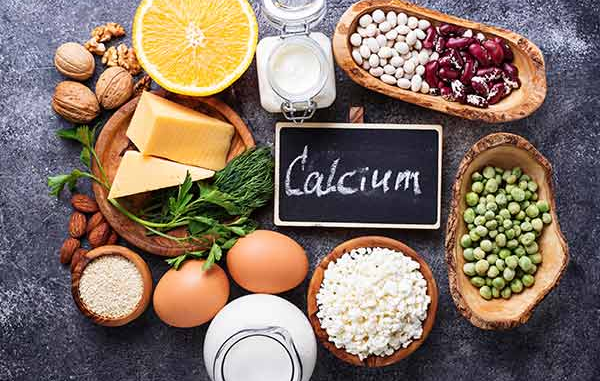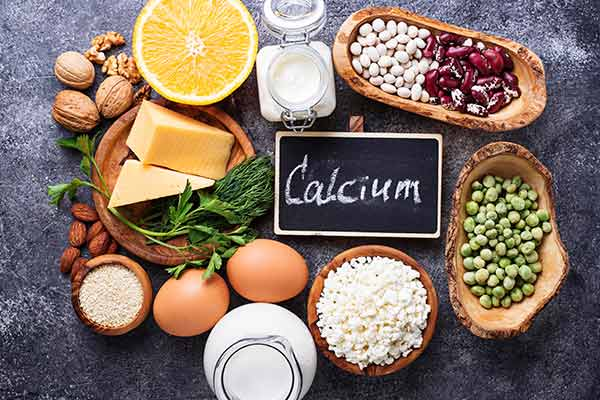
Sounds odd right? But what if I told you calcium was KEY to good gut health?
Unsubscribe | Report as spam | Change email preferences
High calcium diet for better gut health
Dairy products have long been a part of human diets.
They are a rich source of essential nutrients such as calcium, vitamin D, and protein.
And you know what HASN’T been part of mankind for a long time?
Unhealthy guts.
Yes you’ve read that right.
Unhealthy guts don’t go back very far.
The degradation of food quality…
Junk and processed food…
And, of course, the fact that we no longer consume things that are in line with the original natural diet of mankind…
These are the primary factors that DESTROYS the gut.
How to fix? Easy.
- Increase the quality of your food (local farms and organic produce)
- Eat whole foods
- Eat foods that humans have been eating since the beginning
Obviously, dairy being one of them with its high-calcium content.
Today’s research has linked calcium consumption with positive effects on gut health.
Let’s see how.
This study was conducted at the Federal Institute of Minas Gerais, Brazil. It was published in the British Journal of Nutrition.
In this review, the authors critically examined the possible mechanisms by which high-Calcium diets could affect gut health.
They conducted a search of ALL published studies from 1993 to 2015 on this topic.
Since it is a large data, the paper is also quite lengthy.
That’s why I will show you short excerpts from the paper of what the researchers found.
Let’s see what the high calcium diet leads to.
1- It increases the good bacteria and protects gut barrier.
“High-Ca diets seem to favour the growth of lactobacilli, maintain intestinal integrity (especially in the colon), reduce translocation of LPS and regulate tight-junction gene expression.”
2- Increases stomach acid which you digest food easily and kills harmful organisms such as h. Pylori and fungi.
“High-Ca diets are associated with reduced number of viable bacteria in the stomach. A high intraluminal concentration of Ca2+stimulates the release of gastrin and, consequently, increases acid secretion”
3- Reduces the production of harmful substances in the gut (fatty acids), leading to less damage to the lining of the colon and better resistance to infections.
“In some studies, a high-Ca diet reduced the BA and FA concentration in FW. A high-Ca diet also reduced FW cytotoxicity by precipitating cytotoxic surfactants, resulting in lower colonic epithelium damage and higher resistance to infections”
4- Directly competes with pathogens and helps the body to fight them.
“Another mechanism by which dietary calcium phosphate interferes with resistance to pathogens is by binding directly to Salmonella and, hence, increasing the excretion of faecal bacteria, which is also known as bacterial shedding. This reduces pathogen competition and thus enhances the growth of lactobacilli.”
5- Heals leaky gut.
“Several high-Ca salts (calcium phosphate, milk, calcium carbonate and calcium chloride) decreased intestinal permeability in rats”
“Low-Ca and/or low-vitamin D diets reduce tight-junction gene expression in calbindin-null mice, suggesting the importance of this mineral for the synthesis of tight-junction proteins and, therefore, for paracellular permeability.”
6- Prevents colitis.
“In a transgenic animal model of colitis induction, Ca supplementation prevented colitis-induced increase in the expression of extracellular matrix remodelling genes such as matrix metalloproteinases, procollagens and fibronectin. This suggests that Ca strengthened the integrity of the colonic mucosa. Even in animal models, high dietary Ca (90 mmol/kg) prevented the FOS-induced increase in intestinal permeability (measured by Cr-EDTA) only when phosphate content was medium (70 mmol/kg diet) or high (160 mmol/kg diet).”
7- Reduces endotoxin (toxic molecules)
“LPS or serum anti-endotoxin antibodies, gut barrier disintegration and endotoxaemia markers were lower after high-Ca diets than after the control diet in mice”
As you see, calcium is crucial for gut health.
That’s why you (if you haven’t already) check how much calcium you’re getting daily.
If you are getting less than 1000 mg of calcium per day, it’s time to pump those numbers up.
1000mg is the bare minimum.
As I’ve said, dairy is the source.
If you get lots of phosphorus in your diet, calcium should be even higher since they balance each other out.
For some people, a high calcium diet might cause constipation, and magnesium is pretty helpful in that case.
Magnesium helps to soften the stool and does a great job preventing calcium-induced constipation.
—-Important Message About Healing the Gut—-
Inflammation in your gut causes a limp member — doing this fixes the gut and fixes rockiness
Diabetes, high blood pressure, low testosterone, belly fat, erections problems, even cancer — all start from uncontrolled inflammation.
And you know what causes this widespread inflammation in the body?
High estrogen levels.
Estrogen is like poison for men. It inflames the cells.
So if we can lower estrogen, we can lower inflammation and start to see positive health effects, almost instantaneously.
So how do you lower estrogen and lower widespread inflammation in the body?
Try my protocol that naturally lowers estrogen and rids the body of inflammation forever
———-




